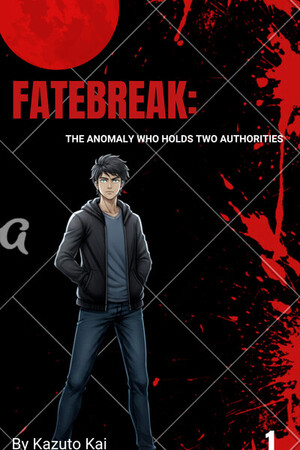Chapter 33:
Spark of Hope -II
The Last Hope of Fallen Kingdom ( Volume 1)
Night had already fallen when Ark left the garden and walked back toward his small room. The moon hung low, pale and thin over the Valkart estate, and shadows pooled deep in the corners of the halls. He moved quietly, a ghost among servants, his face as unreadable as ever. The day had been long; he wanted nothing more than to wash and sleep.
But then a sound cut through the stillness—a wet, strangled sob, the sickening smack of flesh against flesh. Ark paused. The sound came from one of the side corridors that led toward the private wing. It was the kind of sound that should never come from a noble house. He walked toward it without thinking, following the noise like thread to its source.
He rounded a corner and stopped dead. Behind a heavy door Samuel Valkart must have used for private business, a small room had been opened just wide enough for Ark to see inside. There, a rat beast-human girl lay curled on the floor, bruised and breathing shallowly. Sam Valkart’s shadow loomed over her like a judge. The girl’s hair was damp with tears; she whimpered as the lord’s hand struck her again. The old man’s face was red with fury—furious at numbers on ledgers, furious at his own greed—and he took it out on the weakest who could not answer back. By the time he left, the room smelled of copper and fear. The noble’s boots echoed away and the door sighed closed.
Ark stood there in the doorway, his blank mask of a face folding just a fraction. He stepped into the room. The rat girl looked up at him with eyes that were part apology, part pleading. Her breath shook; blood stained the hem of her dress. Ark crouched without show, reached out, and lightly touched her shoulder. The girl flinched, then curled into his hand like a crushed thing.
“If you gather courage and are ready to fight,” Ark said softly, “come to my room tonight. I have a plan. A way to save everyone—if you truly want it.”
Her lips quivered. “You—are you serious? I’m scared—” she whispered.
“Then don’t be,” Ark said flatly. “Fear keeps you a slave. Courage makes you dangerous. Come or don’t. It’s your choice.”
He left the rat girl leaning against the cold wall, and the room that had held cruelty settled back into silence. Ark went to his own small cell and sat on the single chair. Moonlight from the small window cut a pale line across the floor. He wrapped his hands around his knees, thinking. He had only two weeks in this house before the nobles’ schedule would whirl him elsewhere. He could not wait. He had to act, and he had to move with people who knew the place and who had nothing left to lose.
Hours crawled. The house fell asleep. Servants’ breaths were even; the butler’s lamp dimmed in the great hall. Then, as if drawn by the gravity of something finally changing, knocks came at his door—soft, careful. Ark opened it to find one by one the twelve beast-human girls slipping into his room, faces smeared with soot and bruises, eyes bright with a terrible mix of fear and resolve. They did not come alone; they came as a unit, a quiet flock of worn souls that had decided they would not be prey any longer.
“We’re ready,” the rat girl whispered. “If we die, we die. We don’t want this anymore.”
Ark closed the door and let them all sit. The room was small; the air thickened with the scent of sorrow and the faint perfume of someone’s long-ago kindness. He watched them—cow girl, rabbit girl, fox girl, cat girl, the ones who had scrubbed sewers, carried water, borne chains, taken kicks and worse. Each one carried a story that could break a heart. Each one carried an ember Ark recognized: a tiny thing called stubbornness that survived even when everything else was crushed.
“Tomorrow is the Valkart family’s party,” Ark said quietly, and all heads turned. “Four days of preparation, and all eyes will be on this house. That means noble guests, open halls, and a crowd. That crowd is our chance.”
A small gasp escaped from someone, then a ripple of whispers. The cow girl clutched her sleeves. “You mean… to—”
“To show them who we are,” Ark finished. “Not as toys. Not as servants. As people.” He didn’t say revolution with a flourish; he said it like a fact. “They will parade their wealth, their influence, and their masked smiles. They will show how generous and ordered they are. But behind those smiles is the way we live. If we can break the image—if we can force even one guest to see the truth—then the house’s ‘respectable’ face cracks.”
A rabbit girl, voice thin, asked, “But the guards… they will—”
Ark held up a hand. “I will take care of the guards. Not all of them. Not the workers. If you want to stand and speak, I will make sure the men with swords and ropes cannot stop you long enough for the truth to get out. I will not end anyone who is innocent or chained by fear; I will neutralize the violent ones who enjoy hurting us.”
Silence fell. The words were blunt and merciless in their simplicity. The girls’ eyes shone. Some shook; some smiled like cracked porcelain. They knew the cost. They also felt heat under their skin—warmer than fear.
“How?” a fox girl breathed. “We do not have weapons. We cannot fight nobles.”
Ark’s expression didn’t change, but his words came steady. “We do not fight like them. We fight with faces and stories, with smells and sights that cannot be looked away from. We make their ‘perfect party’ smell of the truth. We make it impossible for them to pretend their hands are clean.” He kept the details thin—plans that required courage, not diagrams. “You will not need to learn a sword in a day. You will need to be brave enough to stand, to speak, to be seen. I will make the men who would stop you unable to move for a time. I will be the shadow that pulls at their boots. That will be enough.”
One of the girls, the rabbit girl who had been kicked in archery practice, raised her head, her eyes wet but steady. “If you stop the guards—if you save us… what then?” she asked. “Will we be hunted? Will we have nowhere to go?”
Ark looked at each of them as if he could measure their courage in the set of their jaws. “Then we go. We leave this house and bring the ones who can leave. We scatter and find places where we are not prey. Those who cannot go, we find hidden ways to protect. But first, we must break their face. We must prove to them and to themselves that they are not trash.”
The cow girl’s fingers dug into the hem of her skirt. “And if they hang us?” she whispered.
“Then we die with names on our lips.” Ark’s voice was steady. “But I will not let you die unnoticed. There will be eyes. There will be shame. There will be names. And that matters.”
They spoke then—quiet, fierce talk about positions, routes they already knew through back halls, who would carry what, who would speak and who would free a locked door. Ark did not give them step-by-step instructions; he laid out roles. He made them vow to each other. He told them what to say if a guest asked their name, how to use the hall’s loudspeakers if they could get to them, and the signal they would use when Ark’s part began. He asked for no more than their courage and their honesty.
When one asked about the workers—cooks, maids who had learned to carry on with their heads bowed—Ark was careful. “We will not harm those who are forced by fear or need,” he said. “If they can be made to look, to see, then perhaps some will help. But we do not make victims out of the victims.”
Hours passed in whispers and held breaths. A plan took shape not as a detailed map of violence, but as a sequence of choices that would make the mansion’s perfect façade crack. It was brutal and blunt and not entirely clean, but it was theirs. It required no expertise—only willingness.
Finally, the rat girl rose, hands shaking but face like flint. “If we do this and your plan fails?” she asked.
Ark stood, meeting her question with a slow, simple truth. “Then we take the losses and learn. There is no perfection in escape. But if we never try, nothing changes. If we never stand, we will only teach the next generation to bow.”
They looked at one another then, and in that small, cramped room under the watch of the moon, a pact was formed. Not a shouted vow of rebellion in the streets, but a private, terrible promise: to choose their lives. To accept risk, pain, and the possibility of death for the chance of breath.
At dawn, they would move among flowers and silver plates and polite smiles. They would be seen. They would speak. Ark would do what he had said he would—he would “take care” of the guards, and when that moment came, the girls would do the rest: stand, tell, show, refuse.
They left Ark’s room at different times as the first hints of morning painted the edges of the sky. Some walked back to their bunks, others to the kitchens, some to the garden—each carrying the plan in the tightness of their chests. Ark remained alone a little longer, listening to the house sleep, hearing the quiet regular breath of the nobility above. He felt neither joy nor triumph. He felt the weight of what would come and the clarity of what must be done.
When he finally lay back on his cot, it was not as a man at rest. It was as a man who had lit a match and watched others take hold of the flame. The night had been a confessional, a war council, and a promise. The Valkart party would come, and with it a day that might change the meaning of this house forever.




Please sign in to leave a comment.